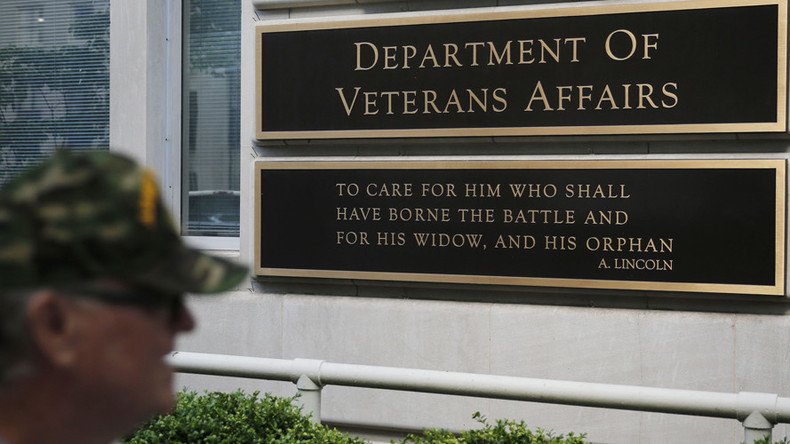Veterans Affairs to finally modernize 30yo medical records system

The US Department of Veterans Affairs is modernizing its medical record keeping by doing away with a decades-old system and replacing it with the same commercial product used by the Department of Defense, allowing for a seamless trade of patient information.
US Secretary of Veterans Affairs David Shulkin announced the Department of Veterans Affairs (VA) will modernize its in-house Electronic Health Record system (EHR) to better address the health concerns of veterans on Monday.
“Having an electronic health record that can follow a veteran during the course of his health and treatment is one of the most important things I believe you can do to ensure the safety and the health and wellbeing of a veteran. So that's why this is so important.” Shulkin said at Monday's White House press briefing.
For the past 17 years, Congress has been urging the VA to modernize its approach to IT (Information Technology). The VA currently uses an EHR system that was developed over 30 years ago, known as the Veterans Health Information Systems and Technology Architecture (VistA).
In a statement from the VA on Monday, Shulkin said the two departments have been working together since 2000 to create “a consistent and accurate view of individual medical record information.” However, Shulkin said the separate systems “still don’t have the ability to trade information seamlessly.”
While the two systems are “interoperable,” meaning they have the ability to exchange and read each other’s records, they are still not able to work together to create treatment plans for veterans.
To coordinate the systems, Shulkin announced that the VA will adopt the same system as the DoD, known as the Military Health System (MHS) Genesis.
“The adoption of the same system between the VA and the DoD is going to allow all patient data to reside in a common system, so you will have this seamless link between the departments without the manual or electronic exchange of information,” Shulkin said.
With the new system, Shulkin said a service member will have one single lifetime record, from the time they enlist in the military until the day they die.
Bringing the two departments under one system has other advantages, according to Shulkin. He claims it will reduce veteran suicides, increase cyber security and be more cost effective.
Veterans affairs chief: 'Nothing makes me lose sleep more than the veterans we are losing to suicide,' https://t.co/uxQbu8iPgW
— RT America (@RT_America) May 31, 2017
While he did not provide an estimate of the cost, Shulkin said the acquisition process for the DoD took 26 months and cost $4.3 billion. And while Shulkin noted that the VA is a larger organization, and the costs would most likely be higher, he said the system will cost less over time.
“This is essentially the most cost-effective way to go to a commercial off-the-shelf system,” Shulkin said. “Each year, I believe it will get more and more expensive to modernize our own system. We aren’t able to keep the type of people that we want. So I think the best cost-benefit decision for taxpayers and for veterans is to move to an off-the-shelf system.”
He also said that using an off-the-shelf system would mean that the VA would no longer be in the software development business, which, he said “is not a core competency of VA.”
“I did not see a compelling reason why being in the software development business was good for veterans, and because of that, I made a decision to move away from our internal product to an off-the-shelf commercial product,” Shulkin said.
President Donald Trump praised Shulkin’s decision during a speech at the White House. He also tweeted that it was “one of the biggest wins for our VETERANS in decades.”
.@SecShulkin's decision is one of the biggest wins for our VETERANS in decades. Our HEROES deserve the best!
— Donald J. Trump (@realDonaldTrump) June 5, 2017
➡️https://t.co/OS2mbIQ3R7pic.twitter.com/yuIg5na5KQ
“The records will now be able to follow the veteran when they leave service – meaning faster, better, and far better quality care,” Trump said, according to the White House. “This is truly wonderful, really monumental reform, so important for our veterans. But it’s just the beginning.”













